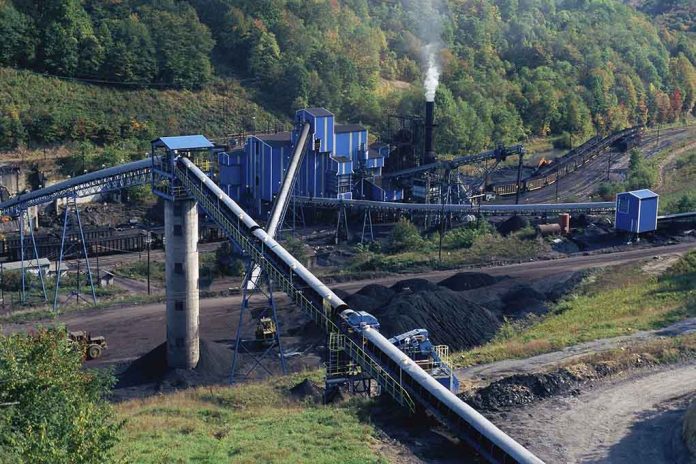
Republican lawmakers are reviving the National Coal Council to restore America’s energy independence after the Biden administration let it expire in 2021, effectively undermining the coal industry that employs thousands across key states.
Key Takeaways
- The House Energy and Commerce Committee is advancing legislation to reconstitute the National Coal Council, which was disbanded in 2021 when the Biden administration allowed its charter to lapse.
- Republican Representatives Michael Rulli and Riley Moore are leading the initiative to support “clean coal” technology and protect American energy security.
- The legislation aligns with President Trump’s Executive Order 14241 promoting clean coal development and aims to meet rising electricity demands.
- Advocates argue coal remains crucial for national security, grid stability, and protecting thousands of jobs in states like Kentucky, Ohio, and West Virginia.
- The revival effort represents a direct pushback against what Republicans view as harmful energy policies that weaken American energy independence.
Restoring America’s Coal Advisory Council
Republican lawmakers are taking decisive steps to resurrect the National Coal Council, a vital advisory body originally established in the 1980s that provided essential guidance on coal markets and technology development. The council, which served administrations for decades before being effectively dissolved in 2021, is now the focus of legislation moving through the House Energy and Commerce Committee. This initiative represents a significant move to restore American energy independence and provide proper support to an industry that employs thousands across key states like Kentucky, Ohio, and West Virginia.
The council’s revival comes as part of a broader Republican strategy to counter what many see as the previous administration’s systematic dismantling of domestic energy production capabilities. When the Biden administration allowed the council’s charter to lapse in 2021, it effectively eliminated a critical voice for coal industry innovation at the federal level. The new legislation aims to correct this oversight by reestablishing the council and ensuring that coal remains a viable and important part of America’s diverse energy portfolio.
Clean Coal Technology and Energy Security
The initiative to revive the National Coal Council aligns perfectly with President Trump’s Executive Order 14241, which emphasizes the development and implementation of clean coal technologies. Republican lawmakers argue that advancements in clean coal technology are essential for maintaining America’s energy independence while addressing environmental concerns. The legislation recognizes that coal remains an abundant domestic resource that, when utilized with modern technology, can provide reliable baseload power generation with significantly reduced emissions compared to older coal-burning methods.
Energy security has become increasingly important in light of ongoing global conflicts and supply chain vulnerabilities. Representatives leading this effort emphasize that dependence on foreign energy sources poses substantial risks to national security. By reinvigorating the domestic coal industry, America can reduce its reliance on energy imports from potentially hostile nations and ensure that critical infrastructure remains powered regardless of international tensions. This approach represents a practical recognition that energy independence directly impacts national security in ways that cannot be ignored.
Economic Benefits and Future Energy Demands
The coal industry continues to serve as an economic backbone for several states, providing well-paying jobs and supporting entire communities. Proponents of the National Coal Council revival point out that hasty transitions away from coal have devastated these communities without providing equivalent economic opportunities. The legislation aims to protect these jobs while also positioning the coal industry to meet future energy demands, particularly the explosive growth in electricity requirements for AI data centers and other emerging technologies. This forward-looking approach recognizes that America’s energy needs are increasing, not decreasing.
Beyond immediate employment concerns, the legislation also addresses domestic manufacturing capabilities and supply chain resilience. By maintaining a robust coal industry, America preserves critical industrial knowledge and infrastructure that supports manufacturing across multiple sectors. Lawmakers argue that a diverse energy portfolio that includes clean coal technology strengthens America’s position as a global energy leader while ensuring that domestic industries have access to reliable and affordable power. This comprehensive approach recognizes the interconnected nature of energy policy, economic development, and national security.



